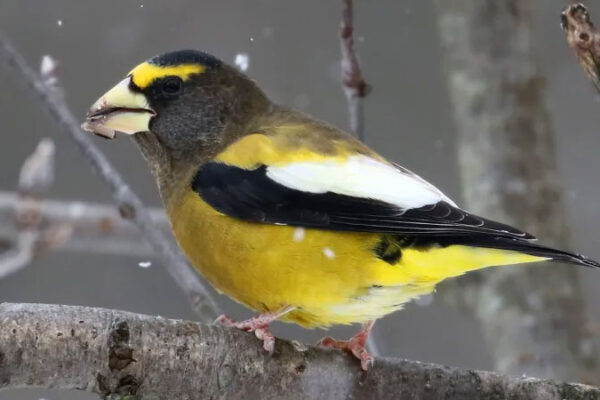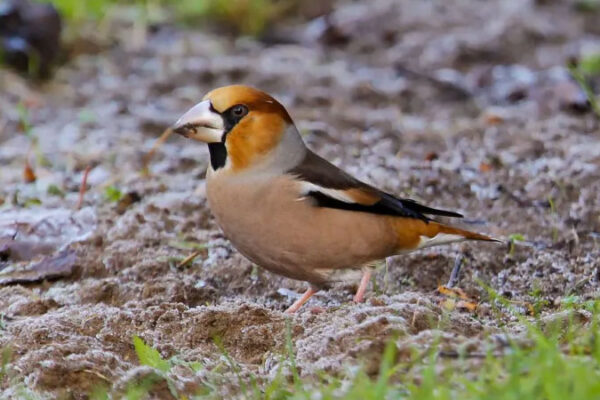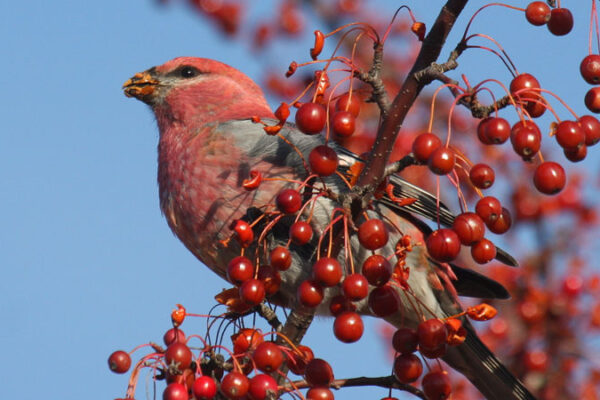Grosbeaks
Grosbeaks are big finches—large, flashy, sometimes noisy, and with that characteristic oversized bill that provides their name. We consider 4 genera below. Given the proclivity for using moderate to high elevation montane forests and large swaths of the far north, many species are likely highly susceptible to the effect of climate change.
The genus Mycerobas contains the Black-and Yellow, Collared, Spot-winged and White-winged Grosbeaks. These are all Asian species, generally preferring montane or submontane habitats. Each species may migrate geographically and in elevation depending on food supplies. This group of birds generally resides in less-densely populated areas at high elevation and away from human habitation, and all are species of least concern.
Cocothraustes contains 3 species: The Hawfinch, Hooded and Evening Grosbeaks. Hawfinches inhabit varied habitats in Europe and Asia, including orchards, mature deciduous and broadleaf forests, and mixed evergreen and deciduous forests. The population contains both largely sedentary and highly migratory birds, and is currently of least concern. Evening Grosbeaks are the western hemisphere’s representative of this group, using varied habitat from boreal forest, temperate deciduous, and montane forests as far south as central Mexico. They are highly irruptive, sometimes ranging thousands of kilometers in a single season while others are largely sedentary. Evening Grosbeaks have at least 5 flight call types, similar to the Red/Common Crossbill complex, which seem to use different habitats and separate geographically. Evening Grosbeaks are declining significantly across most populations, with a conservation status of *vulnerable* at the current time. The Hooded Grosbeak is most closely related to the Evening Grosbeak, and partially overlaps with them in Mexico; their range extends further south to Honduras and El Salvador. Hooded Grosbeaks inhabit montane forests above about 1200 meters and are currently listed as species of least concern.
The genus Eophona includes only two members, the far-eastern Yellow-billed and Japanese Grosbeaks. These closely-related species generally prefer lowland forests and care capable of feeding on a wide variety of seeds, including pines, as well as other nuts and even insects. There is much overlap in range among these species, both in breeding and wintering habitat. Both are migratory.




